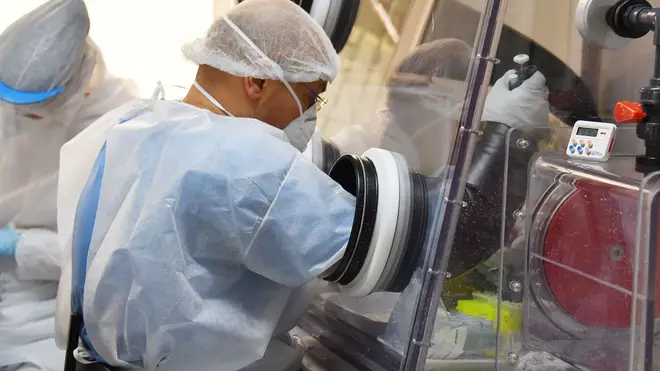
Paul Brand 10am - 12pm
20 April 2020, 10:57

How close is a coronavirus vaccine? Clive Bull speaks to an expert
There are 15 separate projects to create a coronavirus vaccine going on at the moment. This expert in vaccines explains when we could expect one and what it will mean.
Andrew Preston is a Reader at the University of Bath whose research focuses on bacterial pathogens and making vaccines.
He told Clive Bull that we can't wait for a vaccine to be ready to end the coronavirus lockdown.
He said: "I don't think we can wait until mass vaccination is rolled out, as that will be towards the end of this year or quite possibly into next year.
"A complete lockdown cannot be maintained until then."

So what does the rollout of a vaccine depend on?
Mr Preston said: "To a degree, luck.
"We now have so many simultaneous but separate vaccine projects underway. I don't think that's ever happened before to the scale. There are probably 15 vaccination projects going on across the globe.
"The more projects you have, the greater the chance that one of them will reach the end goal of a successful and applicable vaccine.
"I've heard several estimates saying a vaccine could be ready as early as autumn, but that will only be small amounts - not enough for everybody - and that's only if everything goes right.
"There's so much determination that I am confident we will get a successful vaccination at some point. It's just a question of whether it's late this year or the middle of next year."
Listen & subscribe: Global Player | Apple Podcasts | Google Podcasts | Spotify
Mr Preston explains: "You need to induce an immune response to the pathogen - in this case Covid. If you can get antibodies produced very soon after the virus enters the body, it will stop the virus from being able to infect us.
"A vaccine delivers that bit of the virus - or a mimic of it - and stimulating the immune system. The first time your body encounters a virus, your immune system takes a while to get going.
"The second time it encounters it, it's a much stronger and much faster response. That's the idea of vaccines."